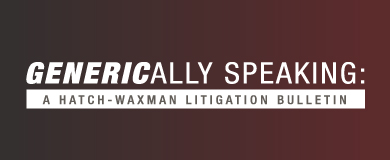- Acumen Powered by Robins Kaplan LLP®
- Affirmative Recovery
- American Indian Law and Policy
- Antitrust and Trade Regulation
- Appellate Advocacy and Guidance
- Business Litigation
- Civil Rights and Police Misconduct
- Class Action Litigation
- Commercial/Project Finance and Real Estate
- Corporate Governance and Special Situations
- Corporate Restructuring and Bankruptcy
- Domestic and International Arbitration
- Entertainment and Media Litigation
- Health Care Litigation
- Insurance and Catastrophic Loss
- Intellectual Property and Technology Litigation
- Mass Tort Attorneys
- Medical Malpractice Attorneys
- Personal Injury Attorneys
- Telecommunications Litigation and Arbitration
- Wealth Planning, Administration, and Fiduciary Disputes
Acumen Powered by Robins Kaplan LLP®
Ediscovery, Applied Science and Economics, and Litigation Support Solutions
-
April 15, 2024Robins Kaplan Named to 2024 BTI Client Service A-Team
-
April 9, 2024Robins Kaplan LLP Files Complaint Against Social Media Giants Meta, Snap, TikTok on Behalf of Spirit Lake Nation, Menominee Indian Tribe of Wisconsin
-
April 8, 2024Tara Sutton, Emily Tremblay Shortlisted for Euromoney’s Women in Business Law Awards
-
April 24, 2024IP Leadership Executive Summit
-
April 24, 2024IP Odyssey: Navigating the Latest Developments in Intellectual Property Law
-
April 30, 2024Navigating Generational Dynamics
-
March 2024e-Commerce: Pitfalls and Protections
-
March 22, 2024‘In re Cellect’:
-
March 14, 2024How Many Cases Have You Tried to a Verdict?
-
September 16, 2022Uber Company Systems Compromised by Widespread Cyber Hack
-
September 15, 2022US Averts Rail Workers Strike With Last-Minute Tentative Deal
-
September 14, 2022Hotter-Than-Expected August Inflation Prompts Massive Wall Street Selloff
Find additional firm contact information for press inquiries.
Find resources to help navigate legal and business complexities.
Takeda Pharms. U.S.A., Inc. v. West-ward Pharm. Corp.
A product label that does not encourage direct infringement cannot be the basis for an induced infringement claim.
July 21, 2016

Case Name: Takeda Pharms. U.S.A., Inc. v. West-ward Pharm. Corp., Civ. No. 14-1268-SLR, 2016 U.S. Dist. LEXIS 65317 (D. Del. May 18, 2016) (Robinson, J.)
Drug Product and Patent(s)-in-Suit: Colcrys® (colchicine); U.S. Patents. Nos. 7,964,648 (“the ’648 patent”), 7,981,938 (“the ’938 patent”), 9,097,655 (“the ’655 patent”), 8,440,722 (“the ’722 patent”), 7,964,647 (“the ’647 patent”)
Nature of the Case and Issue(s) Presented: Defendants moved to dismiss Takeda’s amended complaint for induced infringement on the basis that their 505(b)(2) product label specifically describes using its product for non-claimed indications. In particular, Takeda’s Colcrys drug was approved and used to treat and prevent acute gout flares, while Defendants’ product was approved solely to prevent gout flares. Moreover, Defendants had specified in their product label that their product was for the prevention of gout flares and warned that its drug was not indicated for the treatment of acute gout flares.
Takeda asserted that the product labels did induce infringement because the labels informed the patient to consult a physician if she were to experience a gout flare while taking Defendants’ product, which would lead to the physician’s prescribing the product based on the Colcrys® product label. Takeda also identified FDA correspondence showing that the use of Defendants’ product for treatment may be likely, given the use of it for prevention. Lastly, Takeda relied on alleged statements from sales representatives regarding the use of Defendants’ product for treatment and the existence of contracts with insurance companies to be the only provider of Defendants’ product for the treatment of gout flares. The court granted Defendants’ motion to dismiss.
Why Defendants Prevailed: The district court dismissed the complaint because Takeda had not offered facts, when viewed favorably to Takeda, that demonstrated a plausible claim of induced infringement. The court rejected Takeda’s arguments regarding the product label because the label did not encourage, suggest, or instruct the doctor to perform the claimed method of treating gout flares with the product. Rather, the label instructed patients to seek medical advice if a flare were to occur. Simply because a doctor may prescribe Defendants’ product for treatment did not rise to the level of encouragement for the basis of finding induced infringement.
As for the sales representative statements, the court noted that Takeda failed to identify a single actual instance of such statements, despite the fact that Defendants had been on the market for ten months. Likewise, the insurance contracts did not demonstrate encouragement or instruction to infringe the patents. Though Defendants’ product could be prescribed to treat gout flares under the insurance contract, this speculation was not sufficient to sustain the claim.
Related Publications
Related News
If you are interested in having us represent you, you should call us so we can determine whether the matter is one for which we are willing or able to accept professional responsibility. We will not make this determination by e-mail communication. The telephone numbers and addresses for our offices are listed on this page. We reserve the right to decline any representation. We may be required to decline representation if it would create a conflict of interest with our other clients.
By accepting these terms, you are confirming that you have read and understood this important notice.
